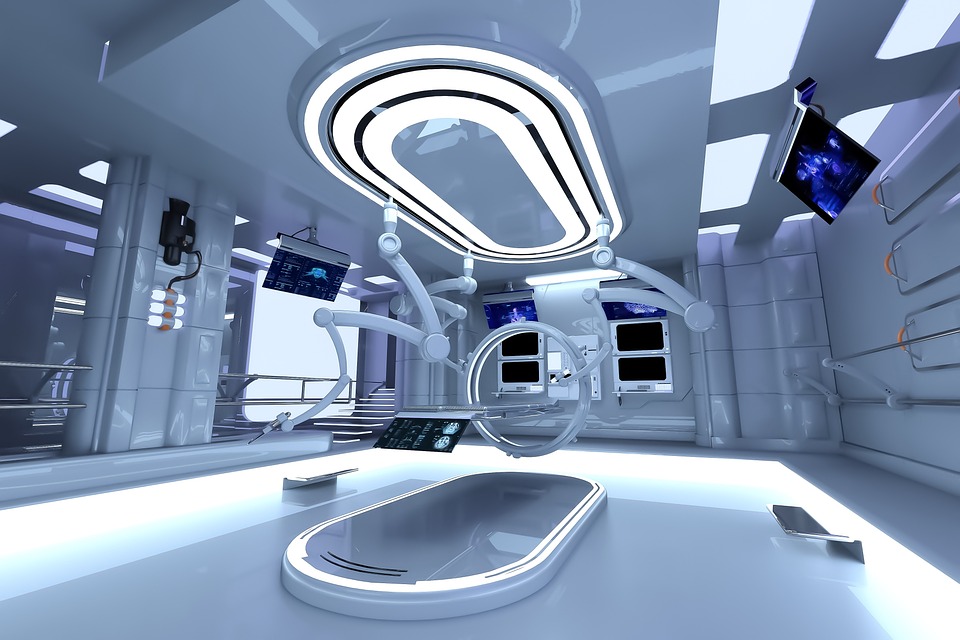Artificial Intelligence and the use of it in the healthcare industry is both amazing and concerning. People’s hopes and anxieties are rather hard to keep in balance. Three of these human issues are getting a special interest: the replacement of the “human touch”, the potential threat to medical records and the industry’s employment future. Even though sides are in constantduelingg, looks like the future tends to bring a more optimistic approach.

The Future Is Functional
In terms of privacy, medical data is a touchy subject and no one is willing to take a risk. The promising technologies are covering these issues and certainly, people are more open to sharing private medical information with the people that can help them solve health problems. New wearable devices are used by more and more individuals and according to an Accenture study, a surprisingly 88% of the users are willing to share their data. Of course, sharing medical data with doctors and other health industry professionals is in their best interest. 72% of the participants are consenting on sharing this kind of information with health insurers meanwhile only 38% are comfortable on giving away medical data to their employers.
Similar results are shown by the survey made on the “human touch” replacement issue. There is no doubt that there are situations when this particular human interaction cannot and will be not replaced. But in so many cases, in terms of efficiency and convenience, a technological process is more desirable. Researchers are showing a tendency to embrace technological breakthrough as more and more people are willing to use Artificial Intelligence-based health care services, including mobile applications, smart healthcare gadgets or monitoring devices. Managing health problem efficiently, again, comes first on personalized care. Correctly identify and diagnose symptoms, receiving first-aid advice or navigate through the health care system are other major popular fields were people are willing the give a shot to AI agents.

Is Healthcare Employment At Risk?
Good evidence of overcoming our fears are emerging as this sector develops new ways to deal with complex health issues. In terms of the long-term effect of the technology on human capabilities, surely our life will change along with the accentuate automation process. But it is not a bad thing, after all, it is actually an opportunity to develop new and greater abilities. The potential work displacement in health care is not sustained by conclusive data as researchers are reveling different conclusions. An Accenture Research study upon workforce future trends is showing how, when it comes to health care, the collected data is pointing to a surprising development. Increasing employment and revenues are going to be both sustained by the continuous evolution of the health care system. As AI is going to move beyond today’s rudimentary implementation, the automation is going to enable a progressive exchange of information and collaboration that will go along with improving performances. The numbers spoke about a 15% increase in the healthcare jobs with 49% revenues raise. What is holding up for this numbers?
- Improving human natural capacities
Researchers from Harvard University have recently developed a technique that uses AI to enhance their analytics on identifying cells that are potentially carcinogenic. They are now able to diagnose breast cancer with a precision of 99.6% and the development has increased the accuracy from 96%. Applying this growth to 1.7 million new cases that are globally diagnosed every year, translates to 62,000 new cases receiving an early stage breast cancer diagnosed.
-
AI care and essential interacting
Eldercare, looking for people with mental problems or assisting the disabled are other few healthcare fields where AI could be efficiently implemented. Chatbots providing companionship, leading elder persons through cognitive exercises or reminding patients’ to take medications could help medical professionals to serve more patients in a day.
-
Enhancing human physical abilities
The extension of human capabilities is another way of using a smart machine. Our limit stands in our nature and reaching beyond these boundaries could be made possible by AI. A clear example is assisted surgery and the already used robotic assistance that have helped surgeons perform otherwise impossible operations such as retina membrane removal – that has become a today’s routine procedure of incredible precision.

The above exemplification is obviously limited to few illustrative examples that could support the evolving collaboration between men and machines. Humans are destined to evolve along with AI development and we should all concentrate on what you do best: develop our intuition, social skills and creativity to embrace and indulge our long-term needed future transformation.

